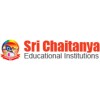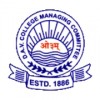23 Wadhwani AI Jobs
MEL Specialist (GAA)
Wadhwani AI
posted 5mon ago
Job Role Insights
Flexible timing
Key skills for the job
Job Description
ABOUT US
Wadhwani AI is a nonprofit institute building and deploying applied AI solutions to solve critical issues in public health, agriculture, education, and urban development in underserved communities in the global south. We collaborate with governments, social sector organizations, academic and research institutions, and domain experts to identify real-world problems, and develop practical AI solutions to tackle these issues with the aim of making a substantial positive impact.
We have over 30+ AI projects supported by leading philanthropies such as Bill & Melinda Gates Foundation, USAID and Google.org. With a team of over 200 professionals, our expertise encompasses AI/ML research and innovation, software engineering, domain knowledge, design and user research.
In the Press:
- Our Founder Donors are among the Top 100 AI Influencers
- G20 India s Presidency: AI Healthcare, Agriculture, & Education Solutions Showcased Globally.
- Unlocking the potentials of AI in Public Health
- Wadhwani AI Takes an Impact-First Approach to Applying Artificial Intelligence - data.org
- Winner of the H&M Foundation Global Change Award 2022
- Indian Winners of the 2019 Google AI Impact Challenge, and the first in the Asia Pacific to host Google Fellows
- Prepare survey instruments, protocols, analysis plans, training material(s) for implementation of various research studies
- Lead, conduct and be responsible for field visits to oversee implementation of project activities (including scoping) and support for course correction
- Lead data processing, cleaning, analysis, visualization and presentation
- Experience working with, managing and coding on web-based data collection applications such as SurveyCTO Or KoboCollect
- Dashboard creation for said indicators and its daily maintenance to ensure display of correct statistics to assist senior team members to take key decisions on progress of project implementation activities
- Support lead MEL in developing the overall MEL plan, log-frameworks, work plan etc. for various projects with guidance from the program management team.
- Support lead MEL in developing research protocols and ensure approval from required Research Ethics Committee and local IRB (as required) ensuring protection of human subjects if applicable
- Development of reports, presentations and templates for effective internal use and dissemination of reports at state & national levels
- Function with utmost sensitivity towards data confidentiality and privacy
- Perform duties as assigned by the supervisor from time to time.
QUALIFICATIONS
- Master s Degree in development studies, demography, statistics, Agriculture stastistics or related subjects. Masters in Epidemiology or Statistics are preferred
- A minimum of two years of post qualification M&E/Quantitative research experience and demonstrated history of practical skills in monitoring and evaluation of donor funded programs in Agriculture or social sector
- At least two years of post qualification experience in supporting operations research protocols and conducting surveys and data collection in the Agriculture sector
- Demonstrated experience in the data management including data cleaning, standardization, maintenance, collation, analysis and reporting
- Experience in managing web based applications for data collection, seamless display of indicators on dashboard for real time monitoring
- Experience in report writing and development of proposals for business development with a variety of domestic and international donors would be an asset.
- High proficiency and experience with statistical software for analysis of large datasets (such as SPSS, STATA, R, Python or SAS). Knowledge of handling web based dashboarding applications like Tableau and GIS applications is desirable.
- Proficient computer skills in Microsoft Office Suite applications, including Word, Excel, PowerPoint, and Outlook.
- Special note - if the candidate applying for this position has no/ less prior experience in Agriculture, he/she has to convince the assessors about his/her learning ability and grasping power to prove suitability.
COMPETENCIES
- Clear understanding of monitoring and evaluation principles and practices
- Thorough theoretical knowledge in principles of dataset management and analysis and ability to apply them as per context
- Proven effectiveness while working in a team-based environment, but capable also of working independently
- Excellent communication and interpersonal skills and ability to work effectively in a complex environment
- Comfort with collaborating across all levels of leadership internally and externally
- Skilled in successfully working with geographically dispersed teams and working in a multicultural environment.
- Written and oral proficiency in English, and verbal communication skills in one or more local languages
- Ability to travel as required
Employment Type: Full Time, Permanent
Read full job descriptionPrepare for Specialist roles with real interview advice
What people at Wadhwani AI are saying
Specialist salary at Wadhwani AI
reported by
2
employees
with 3
years exp.

₹15.5
L/yr - ₹19.8
L/yr
71%
more
than the average Specialist Salary in India
View more details
What Wadhwani AI employees are saying about work life
based on 23 employees
Flexible timing
Monday to Friday
Within country
Day Shift
Similar Jobs for you
Wadhwani AI - Associate Director - Communications & Outreach (13-15 yrs)
13-15 Yrs
Recently Viewed
Share an Interview
How was your last interview experience?
































